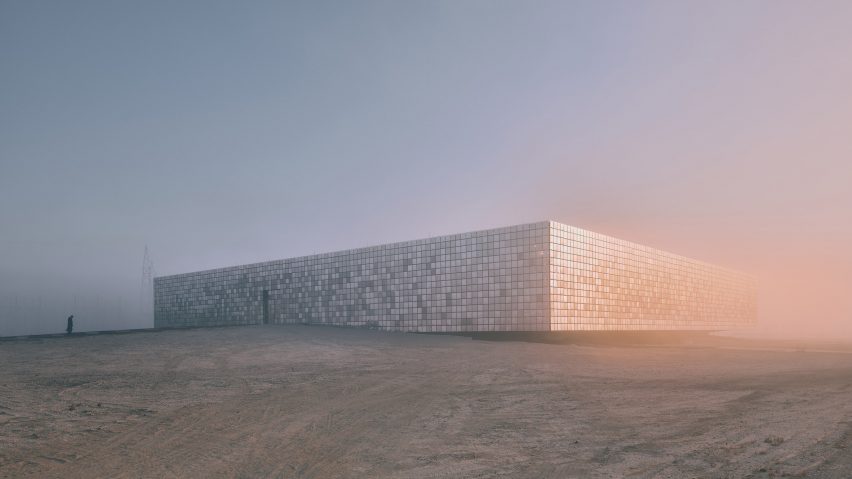
Bilgin Architects shrouds solar farm hub with mirrored steel in Turkey
A facade of shimmering steel panels envelops this control centre that Istanbul studio Bilgin Architects has created in the plains of Karapinar, Turkey, for one of Europe's largest solar farms.
Named Central Control Building, it is designed by Bilgin Architects to act as a centralised location from which to monitor and control the expansive field of 3.2 million solar panels.
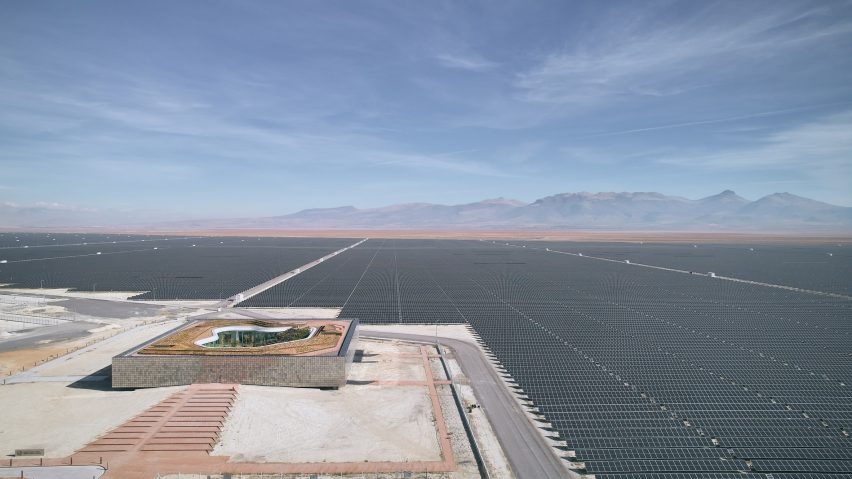
The solar power station is located in a region of Turkey with a desert-like climate, rendering it unsuitable for agriculture. Instead, it is being utilised as a solar farm to capitalise on its exposure to sunlight.
According to Bilgin Architects, Central Control Building is designed as a study of contrasts, with its shimmering metallic facade intended to juxtapose the textures of its arid surroundings.
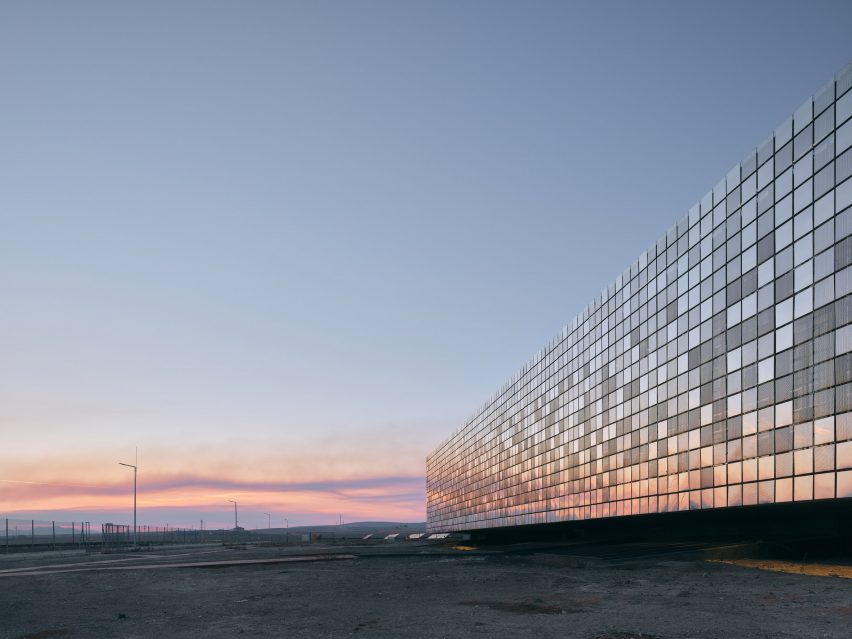
The facade is composed of 7,200 stainless steel panels, some of which have a polished, mirrored finish to reflect the surroundings and help the building blend in.
"Thanks to the high reflectance levels of the facades, the building becomes integrated with the geography it inhabits," founding partner Caner Bilgin told Dezeen.
"The silhouette of the horizon continues on the facades," he said.
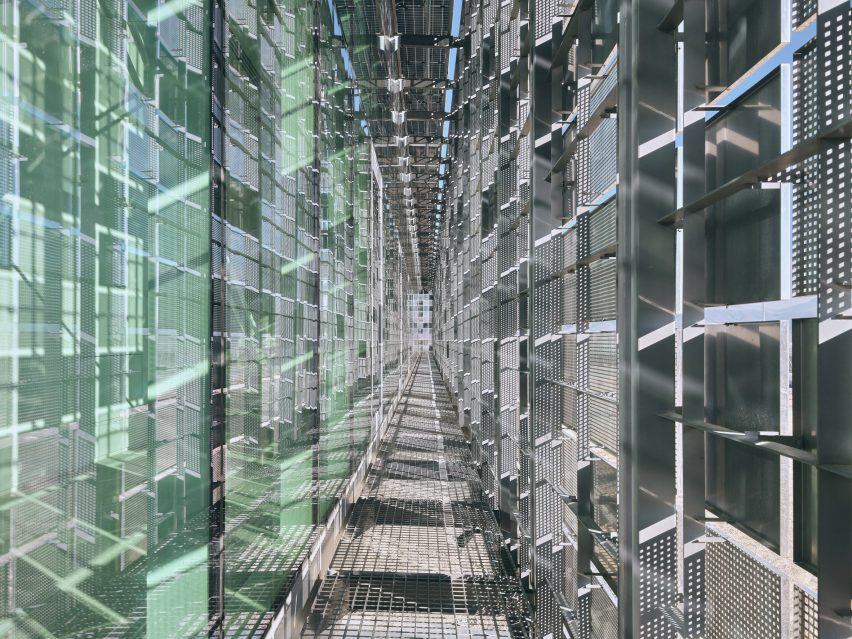
The panels have varying transparency levels due to perforations in their surfaces and they are arranged in an irregular and layered formation determined by parametrics.
When viewed from the inside, this design means the panels act as a semi-transparent screen veiling the outside landscape. As daylight fades into night, the facade appears to turn "inside out" and reveals the internal spaces to those outside.
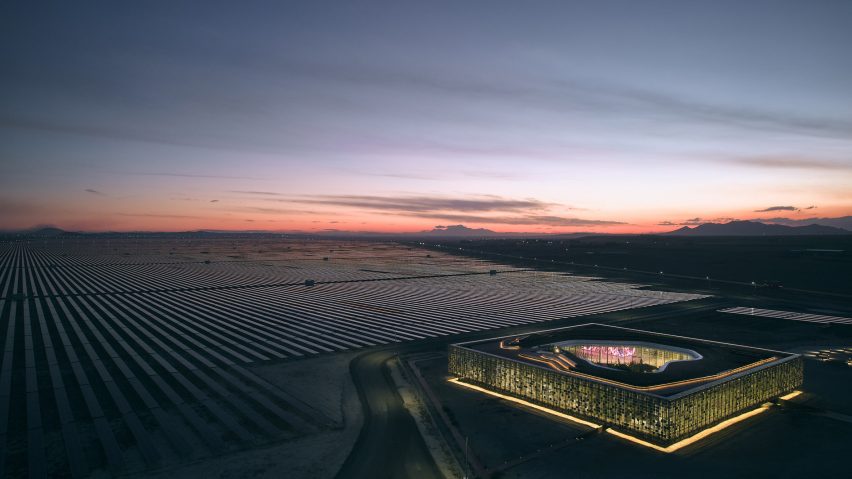
The arrangement of panels also creates a dynamic play of light and shadow inside, while optimising airflow, preventing excessive heat absorption and enhancing the building's climatic comfort.
Meanwhile, their irregular placement generates a distinct and non-repetitive pattern on the facade, interacting with changing lighting and weather conditions.
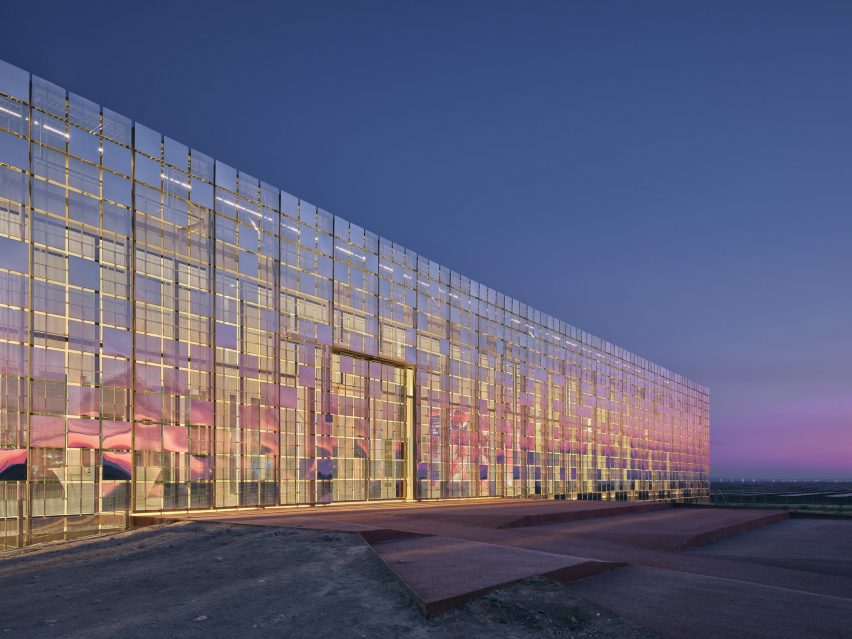
Central Control Building has a rectangular form to echo the grid layout of the surrounding solar panel field. It is single-storey and positioned at a distance to prevent overshadowing.
According to the studio, its low height also aims to minimise bird collisions with the reflective facade, with the help of the irregularities and varying transparency levels in the cladding.
Inside, Central Control Building houses offices and meeting spaces for the engineering and management teams.
It also takes on a semi-public role, with public areas to host educational events and exhibitions to engage people in solar technology.
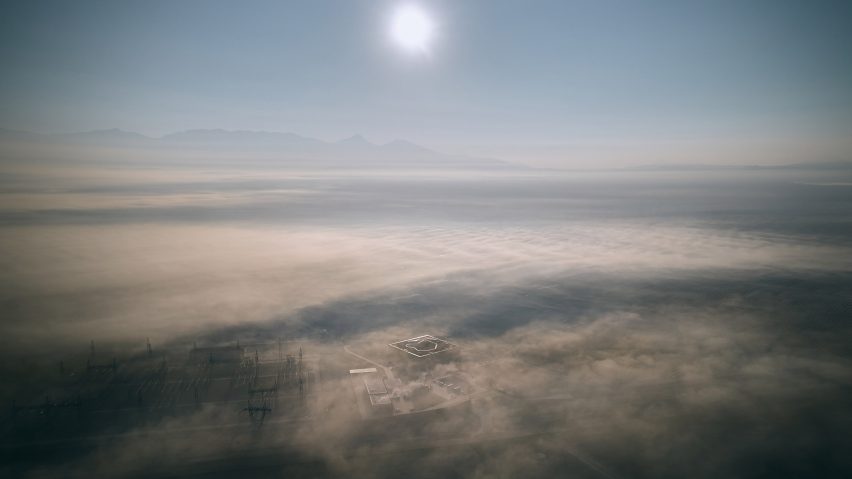
The interior is organised around a central courtyard to help guide circulation and delineate private and common areas.
This courtyard is intended as a refuge from the harsh climate, providing tranquil areas for relaxation. It has been planted with endemic plant and tree species that require minimal irrigation and maintenance.
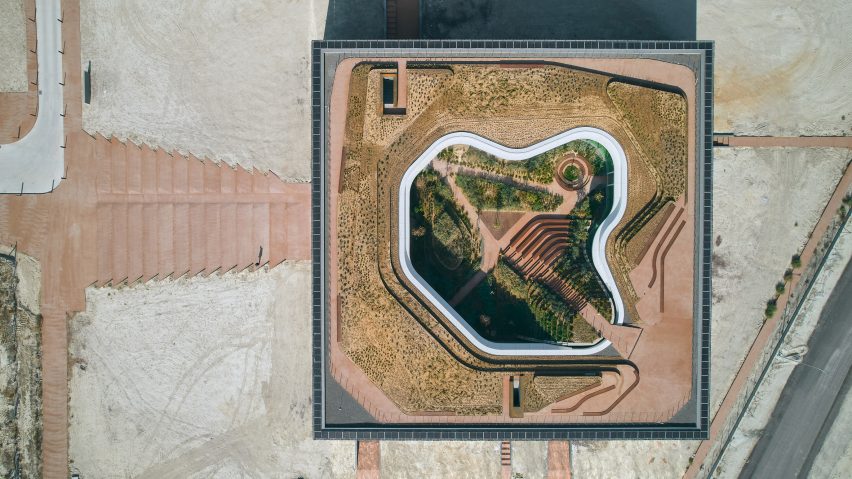
The trees are arranged to shade the interiors from direct sunlight in the summer. However, in the winter when they shed their leaves, sunlight can still penetrate the building to contribute to its heating.
"It's almost like a real oasis," Bilgin said. "It is a wind-receiving, non-dusty and shaded area. It almost acts as a machine that contributes to the energy efficiency of the building."
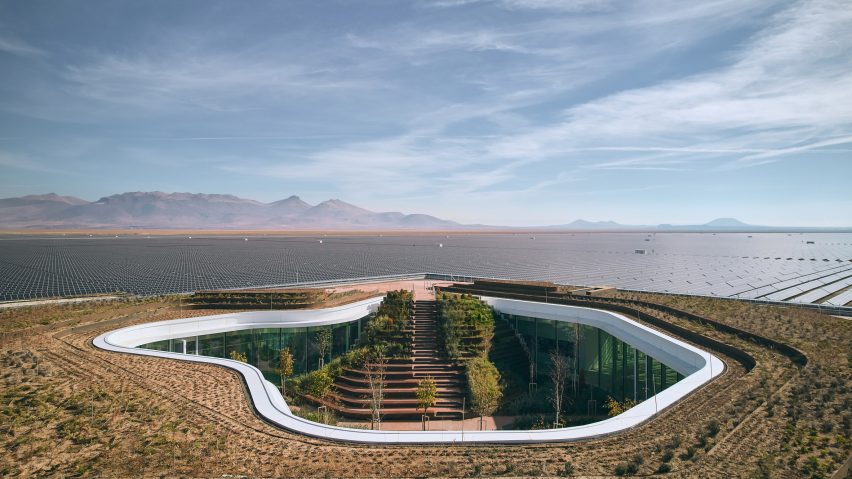
In contrast to the expansive field of man-made solar panels, the courtyard and interiors aim to bring a sense of human scale and nature to the landscape.
Completing the building is a green roof that provides insulation and incorporates a rainwater collection system that is filtered for plant irrigation and landscaping.
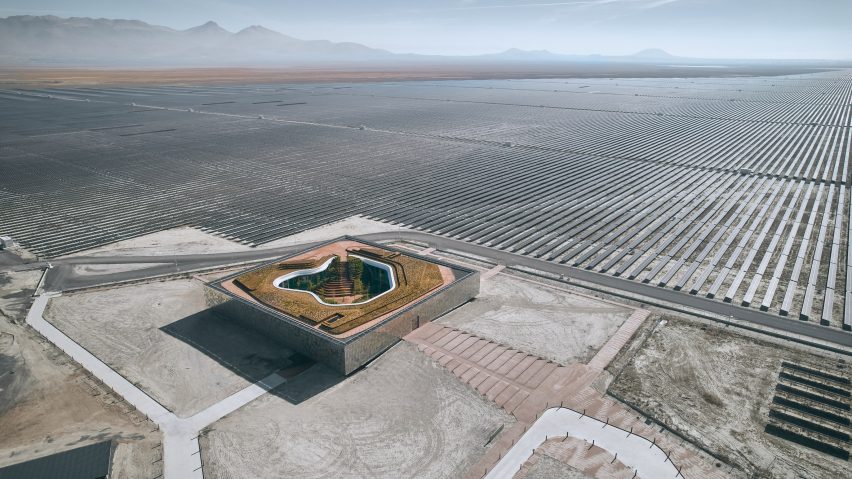
Established in 2014, Bilgin Architects is an architecture studio led by Bilgin and Begüm Yılmaz Bilgin in Istanbul.
Other mirrored buildings in arid landscapes include Invisible House in Joshua Tree National Park desert and the Casa Etérea cabin perched on the slopes of the Palo Huérfano volcano in Mexico.
The photography is by Egemen Karakaya.
Project credits:
Architect: Bilgin Architects
Architectural project team: Caner Bilgin, Begüm Yılmaz Bilgin, Cem Katkat, Serenay Gürkan, Elif Özüçağlıyan, Yıldırım Erbaz
Client: Kalyon Energy
Main contractor: Kalyon Construction
Interior designer: Bilgin Architects
Structural design: Attec Design
Mechanical design: Okutan Engineering
Electrical design: Erke Sustainable Building Design Consulting
Landscape design: Bilgin Architects and MY Landscape
Infrastructure design: Diyap Project
Facade consultancy: CWG Consultancy
Parametric design consultant: Cemal Koray Bingöl
Lighting design: UKON Lighting Consultancy
Acoustics: Mezzo Studio
Fire safety consultant: Mercek Fire Consultancy
Graphic design: Dilara Sezgin
Architectural consultant: İdil Erkol Bingöl
3d print reception desk design and manufacturing: Rolab Studio
Architectural model: Serdar Albaz
Digital art works: Süleyman Yılmaz, Hakan Yılmaz, Ali Tan Uçer, Ecem Dilan Köse